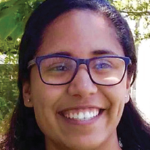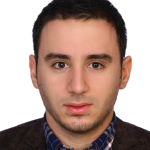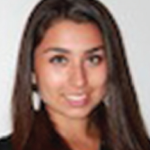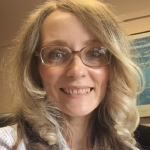One day not too long ago, right smack in the middle of Thanksgiving and Christmas, I was sitting at the roundtable of our conference room, also known as the solarium due to its sunny disposition. The spirit was high, and we all felt like we could bring some joy to the clinic that day. I looked at the young faces of the residents working with me that morning—laughing, exchanging ideas, being silly, teaching, giving feedback, listening. They were talking excitedly about life and medicine. Each of them brilliantly complemented each other: mom of 10-month-old baby girl and native of Massachusetts (Heather); vibrant woman from the Dominican Republic with contagious energy (Anais); the Lebanese resident who just matched to a pulmonary fellowship (Elias); and the female culinary enthusiast from Ohio (Gabrielle).
The clinic has a unique structure and a long history in the Providence, R.I., academic community. I am a director of the rheumatology fellowship program at Roger Williams Medical Center, Providence, R.I. Every month, I accept rotations from Boston University-affiliated Roger Williams Medical Center’s Internal Medicine Program, from the Brown University, Rhode Island Hospital’s Internal Medicine program and from neighboring Memorial Hospital. A few times a year, podiatry residents do a rotation with us, as well.
Educators and program directors across the country debate and analyze how to attract young people to rheumatology. I wondered if reaching out to trainees may provide us with a valuable, but different, perspective on the matter. So at the crossroads of four training programs, three of which are internal medicine, I am animated by my young colleagues and curious about how I can make this rotation better and more beneficial for them. A happy resident may be my future happy rheumatology fellow.
Thus, I asked this group to help me understand what brings them to this clinic and how they would improve the experience. I asked residents to speak out, and here are the suggestions they had.
Anais Ovalle, MD
 A past senior resident suggested that I should complete a rheumatology rotation. At first, I was reluctant, mainly because I just recently became accustomed to managing a majority of cardiac, pulmonary, gastrointestinal, hematological, oncologic and infectious illnesses. As I reflected, I realized I had a major knowledge gap, one I had not previously seen. My institution did not offer a rheumatology rotation, but Roger Williams Medical Center did.
A past senior resident suggested that I should complete a rheumatology rotation. At first, I was reluctant, mainly because I just recently became accustomed to managing a majority of cardiac, pulmonary, gastrointestinal, hematological, oncologic and infectious illnesses. As I reflected, I realized I had a major knowledge gap, one I had not previously seen. My institution did not offer a rheumatology rotation, but Roger Williams Medical Center did.
This rotation is unique in that it includes residents from all other programs around the state. This offers a new place with new faces, and alongside a hesitancy in my abilities to diagnose and manage these conditions, this seemed like a perfect resident rotation.
At first, the rotation was challenging due to the wide spectrum of clinical manifestations in autoimmune conditions. The other residents rotating had come from a similar background as mine. We quickly understood that we shared the same goal: to obtain as much exposure to the subspecialty as possible and obtain a better appreciation of rheumatology.
Each attending took us step by step through the approach of each condition we faced. Slowly, over the course of the month, I gained confidence in my ability to diagnose and treat these disorders. This inspired further interest in the course of thought-provoking differential diagnoses and learning about the new innovative immunomodulators. From beginning to end, we were all able to come closer to our goals, and I recognized the tremendous impact rheumatologic illnesses have on people’s lives. The overall experience is one of a kind—so many minds with different methodologies making thoughtful assessments on how to improve a person’s outcome. Clinically, it was a great experience.
Perhaps, the addition of bedside imaging would further enhance this experience, but overall, the experience this month has made me want to become a rheumatologist.
Elias Jabbour, MD
 I was worried; I started my elective month in rheumatology with fear. For me, rheumatology is a field of knowledge I am deficient in. As my month with Dr. Gilek-Seibert started, I learned she speaks fast and with an accent, but when you follow her train of thought, you understand the brilliance behind her approach. Whether it is an arthrocentesis of difficulty or ease, she will patiently guide you through it. Yes, she believes that residents need to learn, and she is an amazing teacher.
I was worried; I started my elective month in rheumatology with fear. For me, rheumatology is a field of knowledge I am deficient in. As my month with Dr. Gilek-Seibert started, I learned she speaks fast and with an accent, but when you follow her train of thought, you understand the brilliance behind her approach. Whether it is an arthrocentesis of difficulty or ease, she will patiently guide you through it. Yes, she believes that residents need to learn, and she is an amazing teacher.
Then, I worked with another attending—the only one who could understand my French! Although I couldn’t keep up with her French Canadian accent, she was an elegant teacher, and because of her, I learned an elegant physical exam.
The third faculty was a young attending, an efficient and capable worker. Last, but not least—my co-residents. We all enjoyed learning musculoskeletal medicine in the rheumatology clinic. Yes, I walked into the solarium scared. However, I walked out of the solarium equipped with better knowledge of rheumatology and musculoskeletal physical examination.
Heather Ferri, DO
The rheumatology elective at Roger Williams Medical Center offers a wonderful blending of the Rhode Island residency programs. The clinic has a comfortable, well-lit space where, between patient encounters, we can discuss the differences in our programs, our hopes for continued improvement and the importance of our communication for the bettering of our community.
With instructors from different educational backgrounds, including training abroad, the program also creates an inviting platform for conversations regarding global perspectives of healthcare and the future of medicine.
Of course, the patient encounters themselves allow crucial educational benefit in the times of the most innovative treatments in rheumatology. Overall, the elective remains a must prior to completion of internal medicine training.
Gabrielle Thottam, MD
 Walking into the outpatient rheumatology clinic on Nov. 1, 2016, was an exciting point in my career. Before even walking into the rheumatology solarium, I knew I wanted to become a rheumatologist. My month-long rheumatology rotation at Roger Williams Medical Center not only further cemented my decision, but also increased my awareness of the vast amount of discovery that lies ahead for this field.
Walking into the outpatient rheumatology clinic on Nov. 1, 2016, was an exciting point in my career. Before even walking into the rheumatology solarium, I knew I wanted to become a rheumatologist. My month-long rheumatology rotation at Roger Williams Medical Center not only further cemented my decision, but also increased my awareness of the vast amount of discovery that lies ahead for this field.
The elective is extremely well organized and exposes those in the rotation to multiple aspects of rheumatology. Attending daily lectures on various rheumatologic diseases, developing plans of care for patients in the clinic and improving my procedural skills made this elective very comprehensive and beneficial. The attendings and fellows provide a balanced mixture of clinical and academic education.
I left the rotation feeling much more confident in my musculoskeletal examination skills and also enhanced my knowledge of the diagnosis and treatment of rheumatologic diseases. I learned the practice of rheumatology is uniquely tailored to each patient. It is a field in which you are not only challenged to make a diagnosis across multiple organ systems, but also to develop treatment plans for patients that target their disease and contribute to their quality of life.
On the topic of improvements, I think the rotation would benefit from the availability of an in-clinic ultrasound to further our skills with identifying crystallopathies and improving joint injections and aspirations. I also think adding a lecture that reviews the principles of immunology would be useful to this already comprehensive clinical elective.
Unique to my experience during this elective was how my days were spent with fascinating and brilliant women. Our diversity and backgrounds made my days at the clinic not only intellectually stimulating but enjoyable as well. It was empowering to be surrounded by such strong women in medicine, and I feel very grateful to have been a part of that.
My experience made me even more excited to apply to a rheumatology fellowship and to have the opportunity to be involved in such an innovative and important field.
Final Notes
I would like to emphasize the importance of reviewing the elective experience through soliciting and listening to residents’ thoughts about the elective. One can note the advantage of doing so in an informal discussion setting rather than through computer forms that everyone is tired of. Ultimately, the elective may be a pipeline to rheumatology fellowship and also helps facilitate new relationships, which lead to good communication and appropriate referrals from community internists in the future.
 Katarzyna Gilek-Seibert, MD, is the fellowship program director and division chief of rheumatology at Boston University-affiliated Roger Williams Medical Center, Providence, R.I.
Katarzyna Gilek-Seibert, MD, is the fellowship program director and division chief of rheumatology at Boston University-affiliated Roger Williams Medical Center, Providence, R.I.
Anais Ovalle, MD, is a second-year internal medicine resident at Memorial Hospital of Rhode Island. Her interests include general internal medicine, clinical infectious disease and recently general rheumatology.
Elias Jabbour, MD, is a third-year internal medicine resident at Boston University-affiliated Roger Williams Medical Center, Providence, R.I. He graduated from the Lebanese University Medical School in 2013 and moved to Providence, R.I., for a residency in internal medicine in 2014. He has an interest in pulmonary critical care and will be starting a fellowship in that field in July 2017.
Heather Ferri, DO, went to medical school at the University of New England College of Osteopathic Medicine. She is currently a third-year internal medicine resident at Rhode Island Hospital, affiliated with Brown University. She is married and has a beloved daughter at home.
Gabrielle Thottam, MD, is currently a second-year internal medicine resident at Roger Williams Medical Center in Providence, R.I. She plans on becoming a rheumatologist and is applying for a fellowship this year.
Acknowledgment: The authors thank Dr. Barney Zimmermann for his critical and kind review of the article.
What We Do Right & What We Can Do Better
The Roger Williams Medical Center rheumatology rotation:
- Helps close the knowledge gap in an “underserved” discipline;
- Hones physical exam skills for joints, muscles and skin;
- Improves the cooperation between dermatologists and rheumatologists;
- Offers a comfortable work space with enough desktops/laptops;
- Balances education with some nonmedical small talk;
- Includes diversity among its teachers; and
- Involves residents in research projects.
The rheumatology rotation could improve by:
- Offering bedside or work station radiology instruction;
- Starting with basic concepts;
- Making electronic health records more transparent and passwords less burdensome;
- Offering more fellow-driven teaching;
- Adding immunology lectures; and
- Offering ultrasound in the office.


